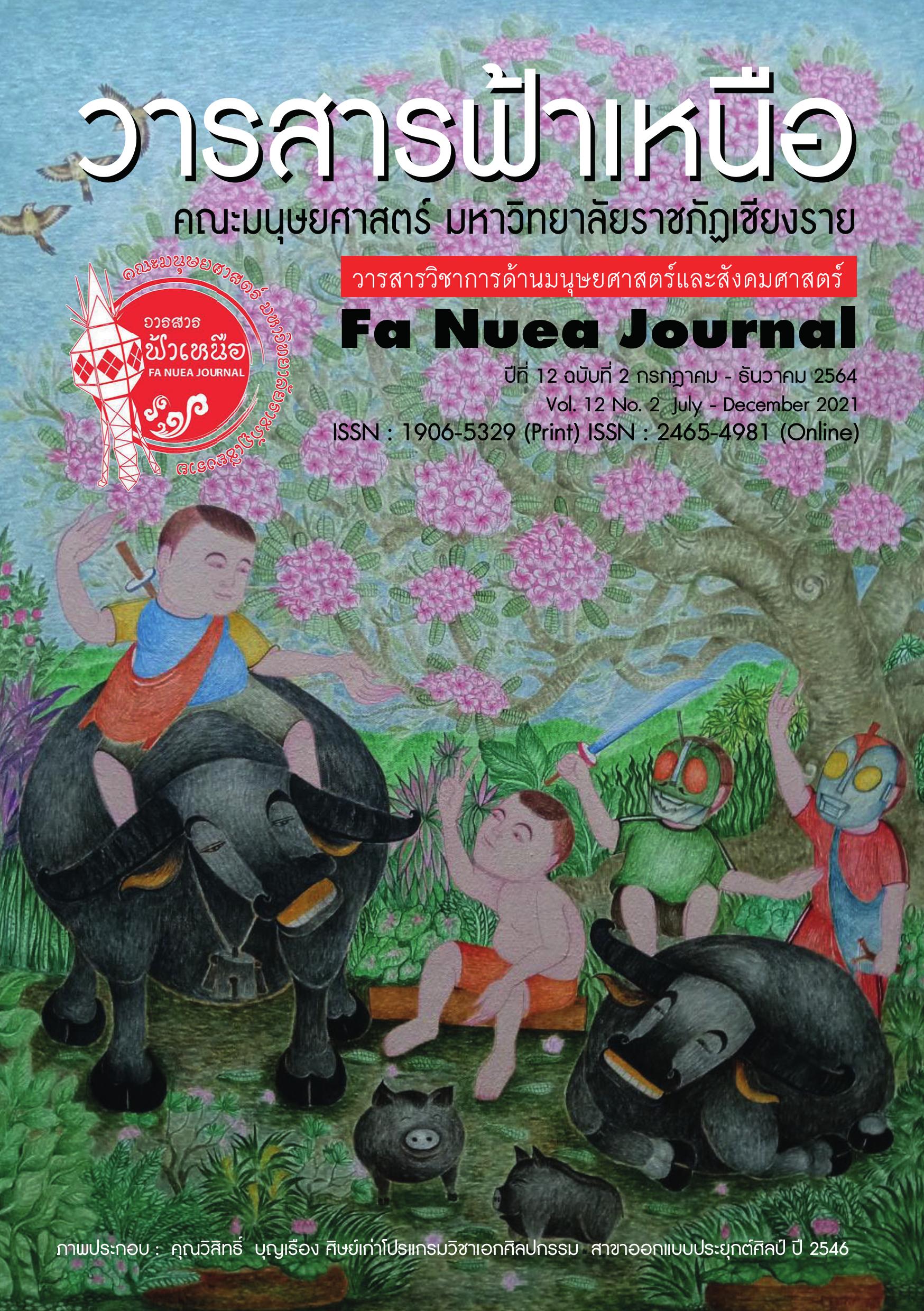Perceptions and Language Learning Strategies of Chinese Students: A Case Study of Chiang Rai Rajabhat University (CRRU)
Main Article Content
Abstract
This study aimed to explore the Chinese students’ perceptions towards studying at Chiang Rai Rajabhat University (CRRU) and to survey their language learning strategies. The study totally recruited 80 third- and fourth-year Chinese students majoring in Thai Language and Culture Program from Faculty of Humanities at Chiang Rai Rajabhat University(CRRU) in the academic year 2019. The questionnaire surveying perceptions and language learning strategies was developed for data collection. The data was calculated for mean and standard deviation.The results revealed that the Chinese students’ perceptions towards learning at CRRU, in descending order, were learning environment and facilities, teaching and learning process, family supports and socio-cultural factors at the mean scores of 4.166 (S.D.=0.67), 4.05 (S.D.=0.75), 4.06 (S.D.=0.74). The Chinese students’ learning strategy choices, in descending order, were socio-affective strategies, metacognitive strategies, and cognitive strategies at the mean scores of 4.123 (S.D.=0.68), 4.065 (S.D.=0.71), and 3.968 (S.D.=0.73).
Article Details

This work is licensed under a Creative Commons Attribution-NonCommercial-NoDerivatives 4.0 International License.
Articles, information, content, pictures, etc. which have been published in Fa Nuea Journal, are copyright of Fa Nuea Journal. If any person or party wishes to disseminate all or part of it or take any action must be referenced. Do not use for commercial purposes and do not modify (CC-BY-NC-ND). For further details, please access at Attribution-NonCommercial-NoDerivatives 4.0 International (CC BY-NC-ND 4.0)
References
An, Z. C. (2010). An Aspect of Globalization in Higher Education: Why Chinese Students Choose to Study in Thailand [Master’s thesis]. Assumption University. https://repository.au.edu/handle/6623004553/1913.
Cheng, Y. (2018). A Study on Improving Intercultural Communicative Competence of Chinese Students in Thailand. https://repository.nida.ac.th/bitstream/handle/662723737/4375/b204599e.pdf.
Nguyen, H.D.N. (2020). Understanding EFL Students’ Use of Listening Strategies in Watching English Captioned Movies. Vietnam Journal of Education, 4(2), 37-46. http://vje.vn/index.php/journal/article/download/18/18.
O'malley, J. M. & Chamot, A. U. (1990). Learning strategies in second language acquisition. Cambridge university press.
Oxford, R. (1990). Language learning strategies. New York.
Rahman, M.M. (2020). EFL Learners’ Language Learning Strategies: A Case Study at Qassim University. Advances in Language and Literary Studies. https://www.journals.aiac.org.au/index.php/alls/article/view/6428.
Saks, K. & Leijen, Ä. (2018). Cognitive and metacognitive strategies as predictors of language learning outcomes. psihologija, 51(4), 489-505. https://www.ceeol.com/search/article-detail?id=745173.
Sari, P. Y., Sofyan, D., & Hati, G. M. (2018). Language Learning Strategies Used by Successful Students of the English Education Study Program at University of Bengkulu. Journal of English Education and Teaching, 4(2), 68-75.
Supakorn, P., Feng, M., & Limmun, W. (2018). Strategies for Better Learning of English Grammar: Chinese vs. Thais. English Language Teaching, 11(3), 24-39.
Ye, Y. (2020). Factors Affecting the Decision-Making of the Chinese Students to Study in Higher Education Institutions in Thailand. Romphruek Journal: Krirk University, 38(1), 101-117. https://so05.tci-thaijo.org/index.php/romphruekj/article/view/214045.


